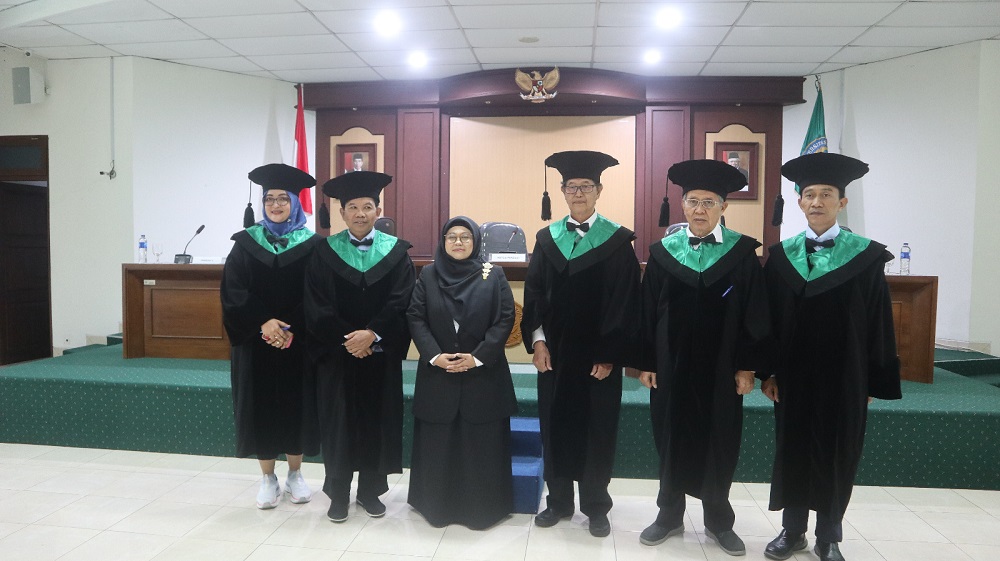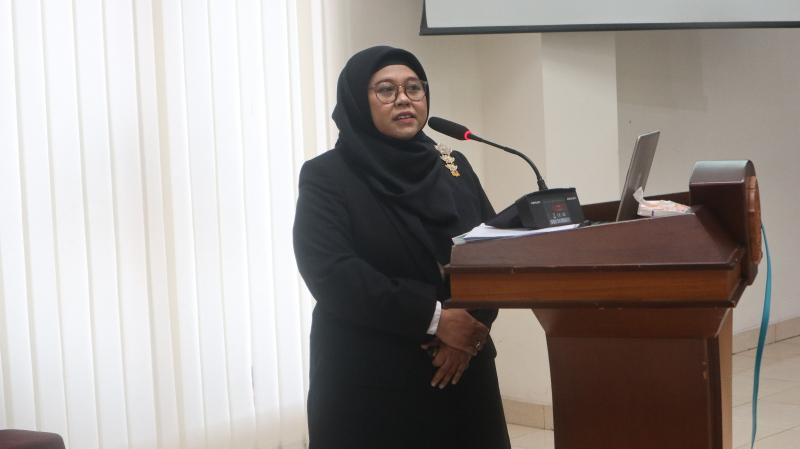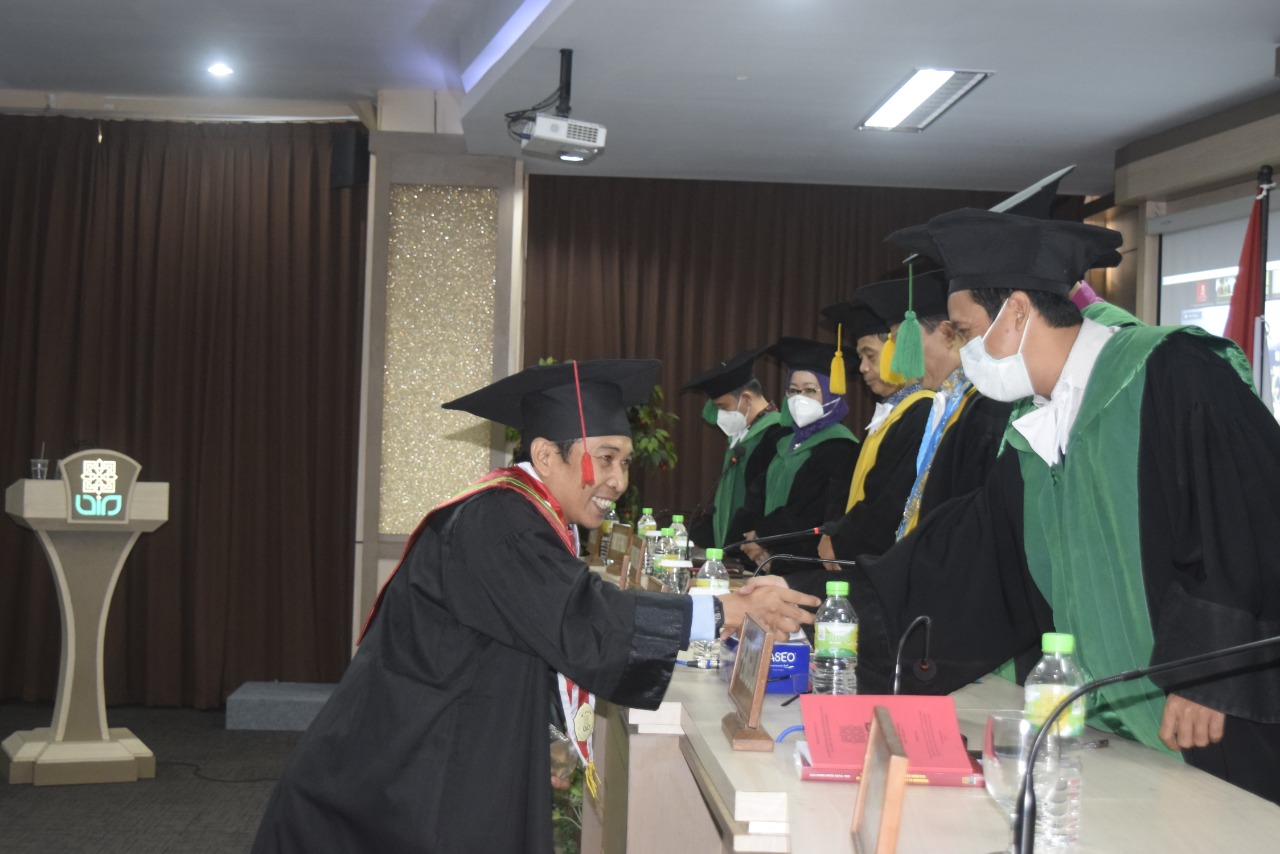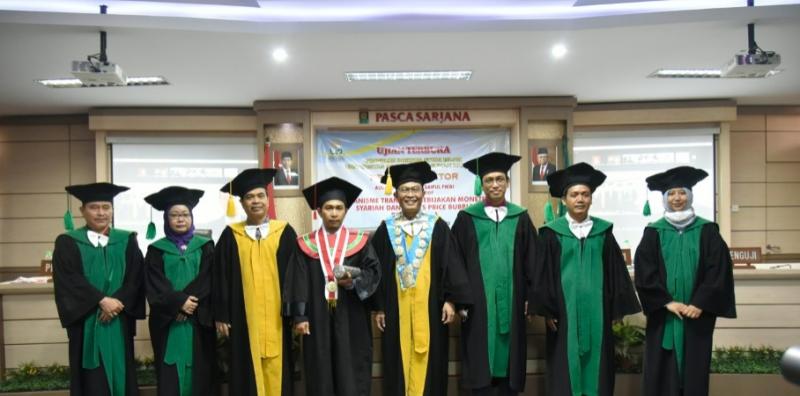Developing Internal Quality Assurance System Planning Model for Vocational Schools, Umi Earns a Doctoral Degree
Submitted by feb on Wed, 07/06/2023 - 13:26
Siti Umi Khayatun Mardiyah, a lecturer in the Administrative Education Department of FEB UNY, successfully defended her dissertation in the Education Management doctoral program at the Faculty of Education and Psychology (FIPP), last Monday (5/6). The open doctoral exam session was led by the Chief Examiner Prof. Dr. Sujarwo, M.Pd., and the board of examiners consisting of Prof. Dr. Lia Yuliana, M.Pd. (Secretary of Examiners), Prof. Dr. Muhyadi (Promoter 1), Prof. Suyanto, M.Ed., Ph.D. (Promoter 2), Prof. Dr. Lantip Diat Prasojo, M.Pd. (Examiner 2), and Prof. Dr. Bambang Budi Wiyono, M.Pd. (Examiner 1 from State University of Malang).
 Umi defended her dissertation entitled "Model of Strategic Planning of Risk Management-Based Internal Quality Assurance Systems in Vocational High Schools in the Special Region of Yogyakarta". This dissertation aims to produce a model of a risk management-based internal quality assurance system (SPMI) for vocational high schools (SMK). This research seeks to find weaknesses and obstacles in the SPMI model that had been implemented, produce a new conceptual model, and test the model to determine its validity and practicality.
Umi defended her dissertation entitled "Model of Strategic Planning of Risk Management-Based Internal Quality Assurance Systems in Vocational High Schools in the Special Region of Yogyakarta". This dissertation aims to produce a model of a risk management-based internal quality assurance system (SPMI) for vocational high schools (SMK). This research seeks to find weaknesses and obstacles in the SPMI model that had been implemented, produce a new conceptual model, and test the model to determine its validity and practicality.
In her research, Umi stated that the SPMI model implemented currently has been in accordance with the demands of the Education Office. However, this model has not met the needs of quality assurance as a whole. Therefore, the risk management-based SPMI strategic planning model serves as a school guide in preparing a strategic plan by considering risk aspects. The results of the validity test of the SPMI strategic planning model based on risk management at SMK are very valid with an average score of 4.6. While the results of the practicality test of this model are very practical with an average score of 4.57. Thus the risk-based SPMI strategic planning model is declared suitable for use by SMKs as a guide for preparing SPMI strategic planning in schools.


